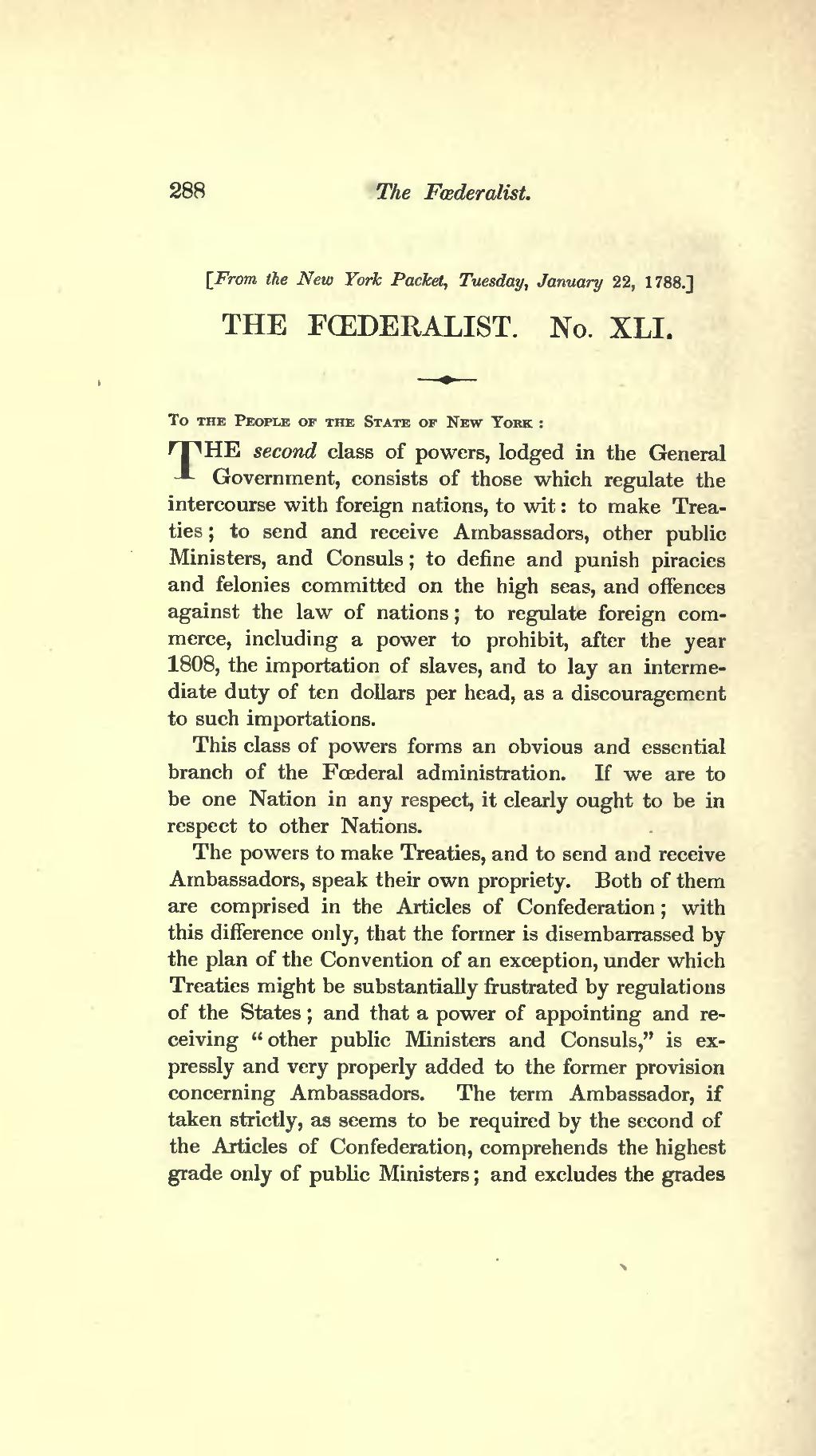THE FŒDERALIST. No. XLI.
To the People of the State of New York:
THE second class of powers, lodged in the General Government, consists of those which regulate the intercourse with foreign nations, to wit: to make Treaties; to send and receive Ambassadors, other public Ministers, and Consuls; to define and punish piracies and felonies committed on the high seas, and offences against the law of nations; to regulate foreign commerce, including a power to prohibit, after the year 1808, the importation of slaves, and to lay an intermediate duty of ten dollars per head, as a discouragement to such importations.
This class of powers forms an obvious and essential branch of the Fœderal administration. If we are to be one Nation in any respect, it clearly ought to be in respect to other Nations.
The powers to make Treaties, and to send and receive Ambassadors, speak their own propriety. Both of them are comprised in the Articles of Confederation; with this difference only, that the former is disembarrassed by the plan of the Convention of an exception, under which Treaties might be substantially frustrated by regulations of the States; and that a power of appointing and receiving "other public Ministers and Consuls," is expressly and very properly added to the former provision concerning Ambassadors. The term Ambassador, if taken strictly, as seems to be required by the second of the Articles of Confederation, comprehends the highest grade only of public Ministers; and excludes the grades
